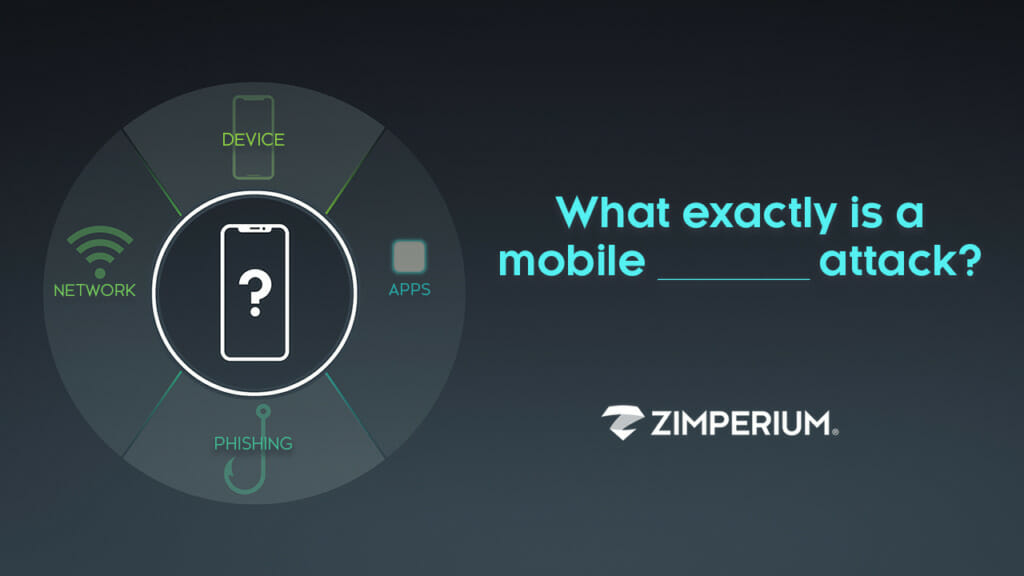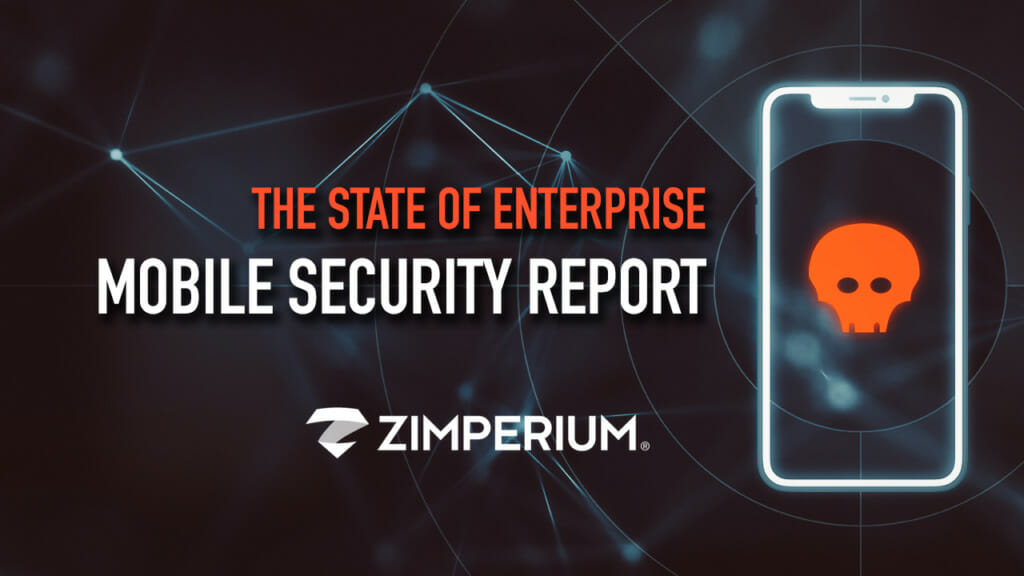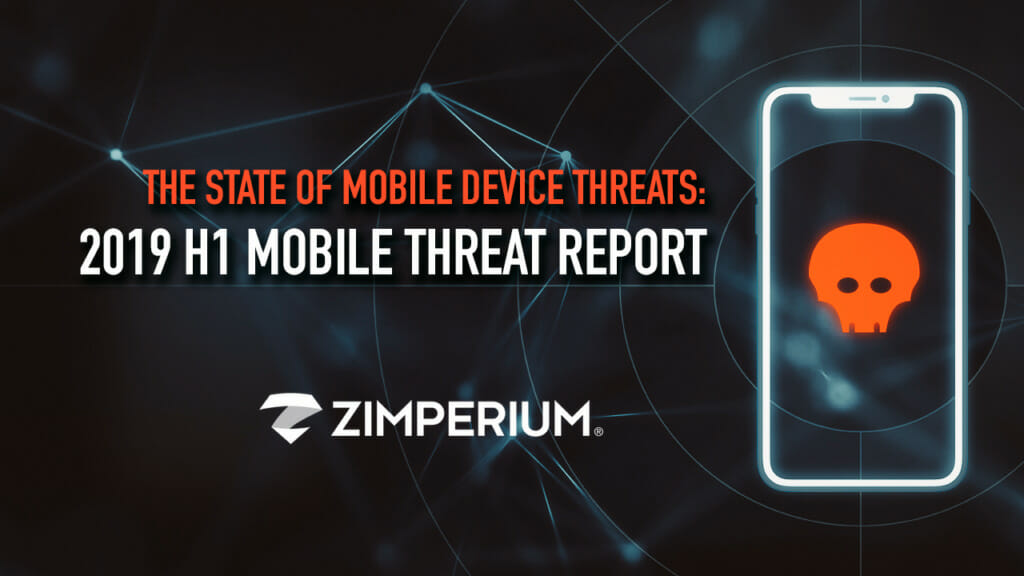In an excellent and deep blog analysis, Ian Beer of Google’s Project Zero outlines five separate iOS exploit chains that were found on a small collection of hacked websites. The hacked sites were being used in indiscriminate watering hole attacks against their visitors, using iOS 0-day. (For another watering hole […]
What exactly is a mobile ______ attack?
Mobile devices contain or have access to the same information as traditional endpoints. While billions of dollars have been spent protecting and securing traditional endpoints, very little has been invested to protect mobile device endpoints. Attackers work on the same model as any other business: where do they get the […]
Zimperium’s “State of Enterprise Mobile Security” Report Says Every Enterprise has Mobile Security Threats and Attacks
Mobile devices continue to be the target of attack at increasing rates. There is a relatively simple explanation for this – in a typical organization today, 60% of the endpoints containing or accessing enterprise data are mobile; the majority of which do not have any security protection today. It […]
The State of Mobile Device Threats: 2019 H1 Mobile Threat Report
As the worldwide leader in mobile threat defense (MTD), no company protects more enterprise mobile devices than Zimperium. As a result, we have incredibly rich and unmatched forensic data about mobile device, network, phishing and app risks and attacks from all around the world. Based on popular demand, Zimperium held […]
The Mobile Watering Hole: How A Sip Leads to A Trojan Compromise
“Watering Hole” is a cyber attack strategy in which the victim is a particular group (organization, industry, or region). In this attack, the attacker typically observes which websites or applications the group often uses and infects one or more of them with malware. Eventually, some members of the targeted group […]
WhatsApp Buffer Overflow Vulnerability: Under the Scope
Researcher: Chilik Tamir (@_coreDump) Recently, Zimperium blogged about the new WhatsApp vulnerability disclosed by Facebook on May 13th. This vulnerability was reportedly exploited in the wild, and it was designated as CVE-2019-3568. A previous post by Zimperium gave some preliminary information about the vulnerability, impacted WhatsApp products, an alleged […]
CVE-2019-8545: Vulnerability in IOHIDFamily.kext
Summary A local user may be able to cause unexpected system termination or read kernel memory. Details In the function IOHIDEventServiceFastPathUserClient::getSharedMemorySize, the ClientObject (Offset 0xE0 of the user client) is given to a function which assumes it is initialised (It should be initialised via external method 0 — IOHIDEventServiceFastPathUserClient::_open). Calling […]
WhatsApp Buffer Overflow Vulnerability Reportedly Exploited In The Wild
A new WhatsApp vulnerability has attracted the attention of the press and security professionals around the world. Zimperium zLabs will be creating a detailed blog soon, but we wanted to provide our readers with preliminary information now. What follows is a quick summary of the vulnerability. It has been rumored […]
Malicious WiFi Connections: Welcome to RSA Conference 2019
Nicolás Chiaraviglio (@chiconara) We recently blogged about attacks perpetrated at WiFi networks in Barcelona before and during the 2019 Mobile World Congress (MWC). We found an astonishing amount: estimating more than 7,000 threats in less than four days. Furthermore, 25 percent of those threats were detected in hotels, and of those, 70 percent […]
Machine Learning vs Signatures, Round N: Once Again, Zimperium Detects Malware No One Else Does
Analysis & Post By: Alex Calleja (@alximw) Matteo Favaro (@fvrmatteo) Advertising and click fraud campaigns are one of the most common mobile malware-based monetization techniques. Although they are considered a lawful income source in most app markets, they can put the user’s privacy at risk and even cause economic damage. Once […]









